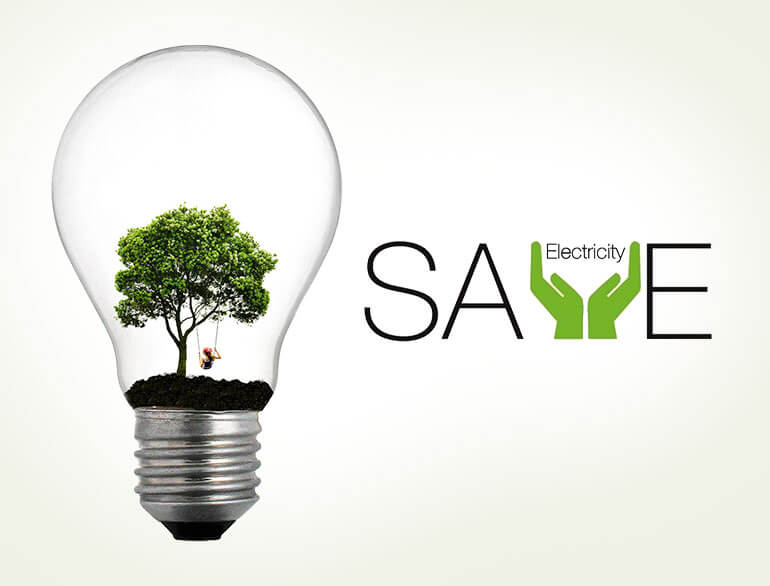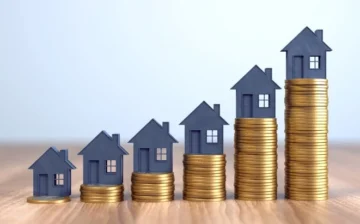
There are various ways to help reduce home energy use, from changing a few habits to performing extensive home upgrades. With pollution and climate change being global issues, it’s time to take a stand and make a change, regardless of how small. Plus, by reducing your carbon footprint, you can also save money on energy bills in the long run.
Read on as we show you how to conserve energy and save electricity!
How to Conserve Energy and Save Electricity
Before you hire experts electricians to help create improvements to conserve your home’s energy, check out these tips so you can plan your home improvements accordingly:
Adjust Your Daily Behaviors
You don’t have to spend tons of money investing in energy-efficient products. Energy conservation can be done by changing some of your habits, such as switching off appliances and lights when not in use. Also, instead of using energy-intensive appliances all the time, use them less by performing a few household chores manually, such as hang-drying clothes instead of using the dryer, or handwashing dishes.
Replace Your Lightbulbs
Did you know that traditional incandescent lightbulbs consume a lot of electricity and require more frequent replacement compared to energy-efficient lightbulbs?
Halogen incandescent bulbs, compact fluorescent bulbs, and LEDs use 25-80% less electricity and last 3-25 times longer than traditional lightbulbs. While pricier than traditional bulbs, they pay off with their longer lifespan and energy efficiency.
Install a Smart Thermostat
You can set programmable or smart thermostats to automatically switch off or reduce heating and cooling throughout the day, when at work, during sleep, or when you’re outside of the house.
By installing such thermostats, you can reduce wasted energy in heating and cooling without having to upgrade your HVAC system. On average, installing a programmable thermostat can save you up to $180 a year.
Invest in Energy-Efficient Appliances
Appliances are usually responsible for around 13% of total energy usage in the household. When you purchase appliances, make sure that you look into two numbers, which are its price and its annual operating cost.
While energy-efficient appliances may have higher upfront prices, the operating costs are usually 9-25% lower compared to traditional models. You should also look for appliances that come with an ENERGY STAR label, which is the federal guarantee that appliances consume less energy when being used and when on standby.
Reduce Water Heating Costs
Water heating is a huge contributor to total energy consumption. Rather than purchasing energy-efficient water heaters, there are other methods to reduce water heating costs.
For starters, you can use less hot water! Or, turn down the thermostat of your water heater, or insulate the water heater, along with the first six feet of its hot and cold-water pipes.
If you have the budget and your water heater needs replacement, you may do so, investing in a more energy-efficient model.
Install Energy-Efficient Windows
Did you know that your windows may also be the reason behind your energy waste? They can add up to 25% of your total heating bills of the total heating bill!
To prevent heat loss through the windows, replace single-pane windows with double-pane ones. If you live in colder regions, you can also invest in gas-filled windows that have “Low-E” coatings that can reduce heating expenses. Plus, you can have interior or exterior storm windows, which can reduce unnecessary heat loss by up to 20%.
In warmer climates, the problem may be heat gain through windows. That’s where Low-E coatings on windows come along.
Upgrade the HVAC System
HVAC systems are composed of air conditioning, heating, and ventilation equipment. Heating alone may end up being responsible for about 40% of home energy use.
If you are able to, it may be time to upgrade your HVAC system to one that has the ENERGY STAR certification, which can save up to 12% on your heating bill, for an average of $36 a year. Besides this, these systems are also up to 16% more energy efficient compared to conventional models, saving to up to $94 a year on your heating bill.
Weatherize Your Home
You should also weatherize your home, or to seal air leaks within the house, as this can reduce heating and cooling expenses. Common sources of air leaks are the air vents, doors, and windows. Prevent leaks by ensuring that there aren’t any cracks or openings in doors, vents, walls, or doorframes.
We also recommend that you insulate your home, which plays an important role in lowering utility bills by retaining heat during the winter and keeping heat out of the house during the summer.
Wrapping It Up
You can see just how many ways there are to reduce home energy use, which will help you save on energy bills while protecting the environment. By following the right tips, your investments will pay off in the long run and your household can enjoy a more efficient home. Consulting with local Electricity companies can also provide insights into additional ways to optimize energy usage tailored to your specific region and needs.
We hope you found this blog post How to Conserve Energy and Save Electricity In Your Home, useful. Be sure to check out our post Which Smart Home Devices Help Lower Energy Bills? for more great tips!
Have Experience in the Moving Industry? Want an Additional Income Stream? Work With All Around Moving!
Partner with us and we’ll help you profit. Click here to learn more.





